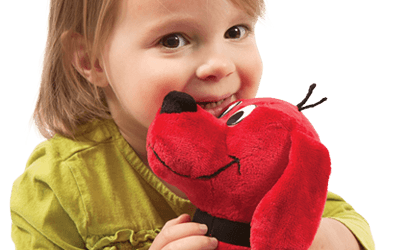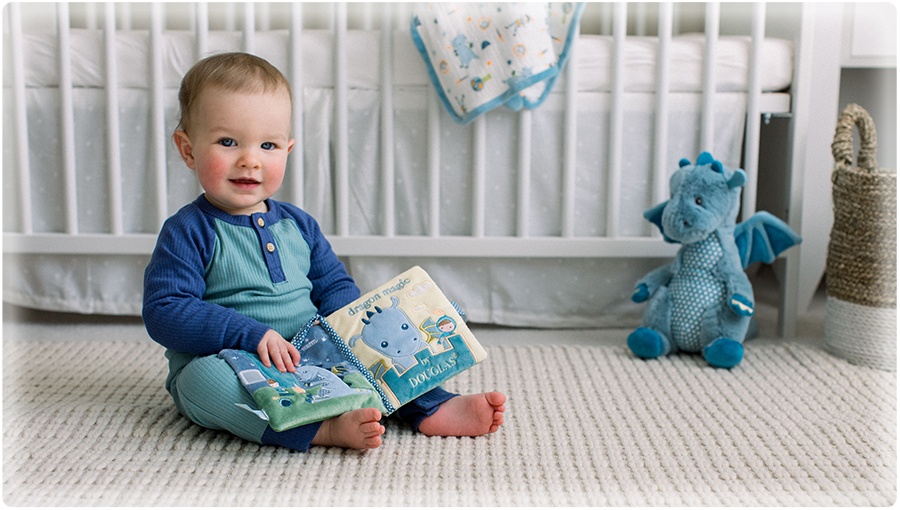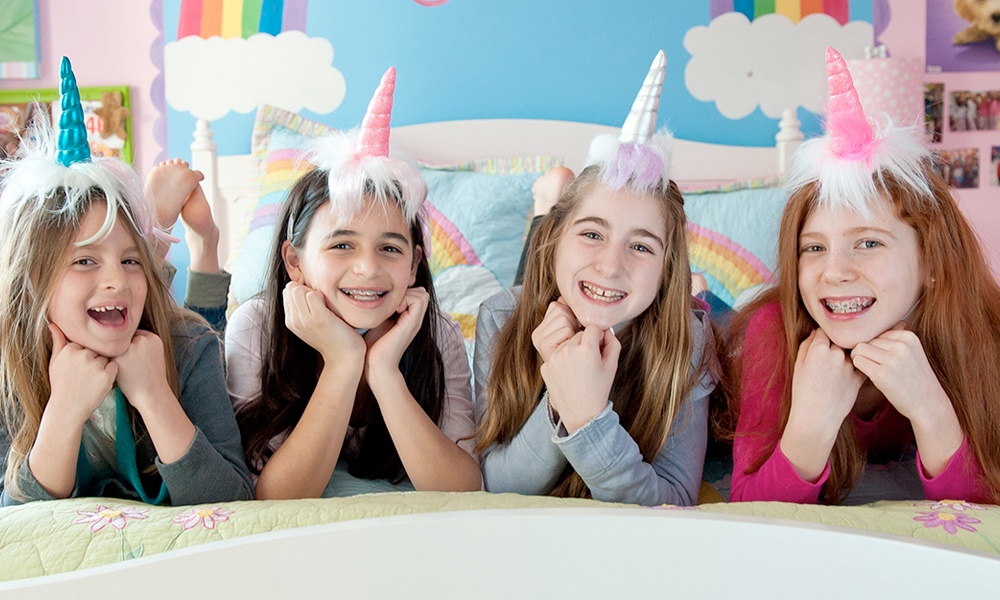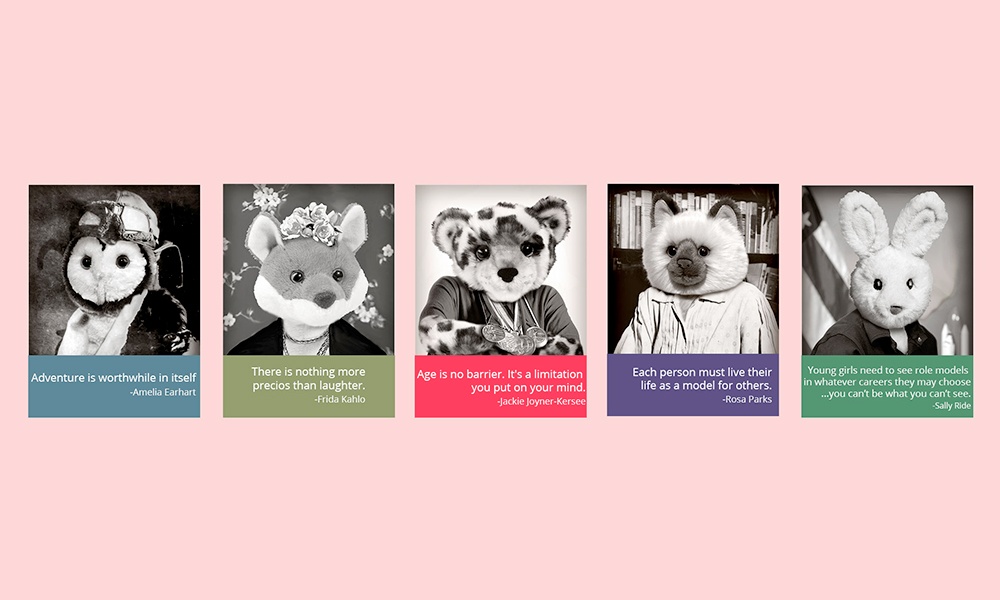It’s no secret that little ones love their cuddly pals. After all, what’s not to love? But dig a little deeper and you’ll find that these imaginary companions play a more vital role in child development than you may think.
They provide much-needed comfort
Perhaps the most obvious function stuffed animals serve is to ease distress and anxiety. (Any parent who’s watched their baby’s tears turn to giggles at the sight of their favorite stuffed animal knows this to be true.) For infants, the world can sometimes feel like an uncertain, scary place. Stuffed toys can help them cope with these emotions because they represent familiarity and reassurance.
This is also important for gradually building your baby’s ability to self-soothe without the help of mom or dad. Big life events, like welcoming a sibling, for instance, can feel less threatening with a favorite stuffed buddy by your child’s side. In fact, Researchers at North Dakota State University say that cuddling a stuffed animal helps young children rely on their own ability to seek comfort. Just how powerful are the comforting powers of stuffed animals? One study found that they can relieve trauma in children exposed to war and terror.
They help develop social skills
When you see an infant loving on their favorite stuffed animal, it may not look like play. However, the truth is that these types of toys help lay the groundwork for fundamental social skills. Experts say that 12 to 18 months is the optimal time to start using toys like stuffed animals and dolls to encourage pretend play. This often includes mimicking the familiar, everyday activities that are part of their regular routines. Pretending to eat or drink from a bottle, for example, is a relatable activity that allows the child to take on the role of caregiver and use their imagination.
Allowing young children to immerse themselves in pretend play with other children is also profoundly important to social development. This can include everything from siblings role-playing with stuffed animals, to your child using their favorite stuffed toy to interact with a playmate at daycare. The point is that the interaction bolsters social skills.
They foster language development
Engaging in pretend play also serves as a viable way of developing speech and language skills. Nurturing these emerging communication skills is crucial; so why not do it with their favorite stuffed animals? When you help your child act out playful role-playing scenes, talking is a natural part of the process. Think about it: What encourages the best use of language? Playing with blocks, or interacting with dolls? Another perk? Experts say that telling a story by making stuffed animals “talk” to each other is a powerful way of laying the groundwork for reading and writing.
For babies, you only have to rewind this scenario a bit to get the same effect. For example, if your infant is babbling, make their stuffed animals “talk” back to them during natural breaks in the babble. This will help promote conversational turn-taking.
They encourage compassion and empathy
Caring for a stuffed animal is tremendously helpful in nurturing your little one’s natural desire to connect with others. According to one report, children develop an appreciation for relationships with others during pretend play because it requires them to consider other people.
Pretending to care for a stuffed animal or doll also satisfies the need to nurture. The fact that young children tend to identify with stuffed animals may make them an ideal toy to use. Experts say that introducing a novel stuffed toy as a new member to a classroom who needs love and care can bolster both empathy and compassion. This directly translates to little ones at home. Taking care of Teddy forces your child to consider the toy’s “needs.”






Hi: My name is Chris … stuffed toys were very important to me as a child … and they are still strong in my memory … because you see, I was abused severely … and my stuffed toys were a refuge and a comfort to me. I had a stuffed tiger named Tony … a Navy bulldog mascot named Rufus that a sailor bought for me when I was very young because I reminded him of his little boy … a stuffed dog named Alouette because that was the French tune that would play when you turned the metal crank on his left side. I talked to these stuffed animals and they consoled me, somehow. I could hug them and be hugged in return. Jesus is my best friend now, besides my loving wife, and He has brought much healing to me. But I will never forget my stuffed animal toys … the tiger and the two dogs. Rufus is still with me … he sleeps with me every night … that may seem silly for a man in his sixties, but he is still important to me. A man who didn’t even know me showed kindness to a boy he didn’t know was hurting. God bless as you give comfort to children.